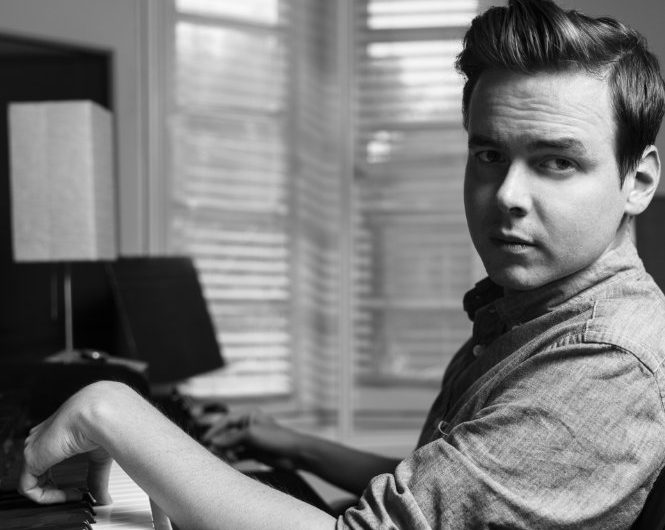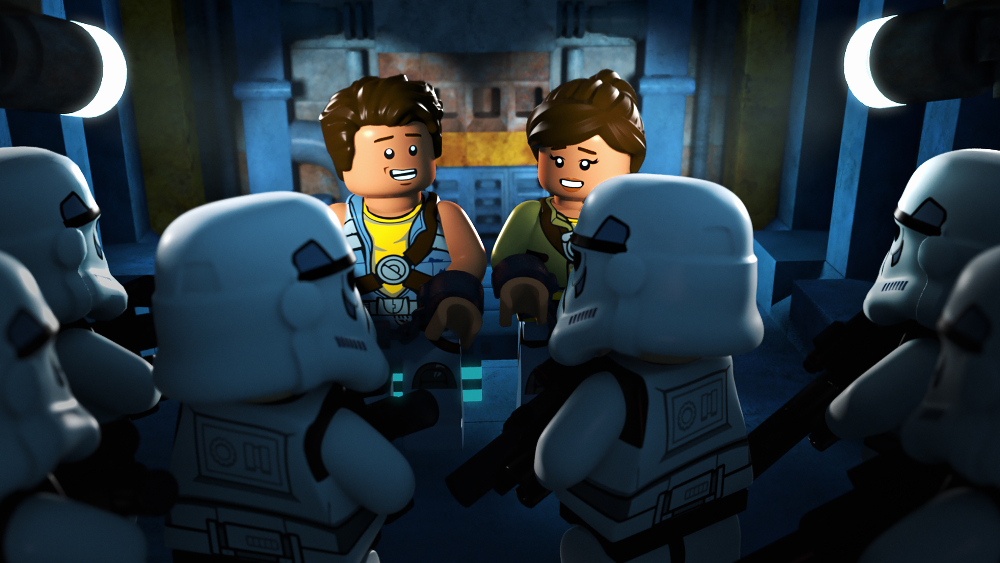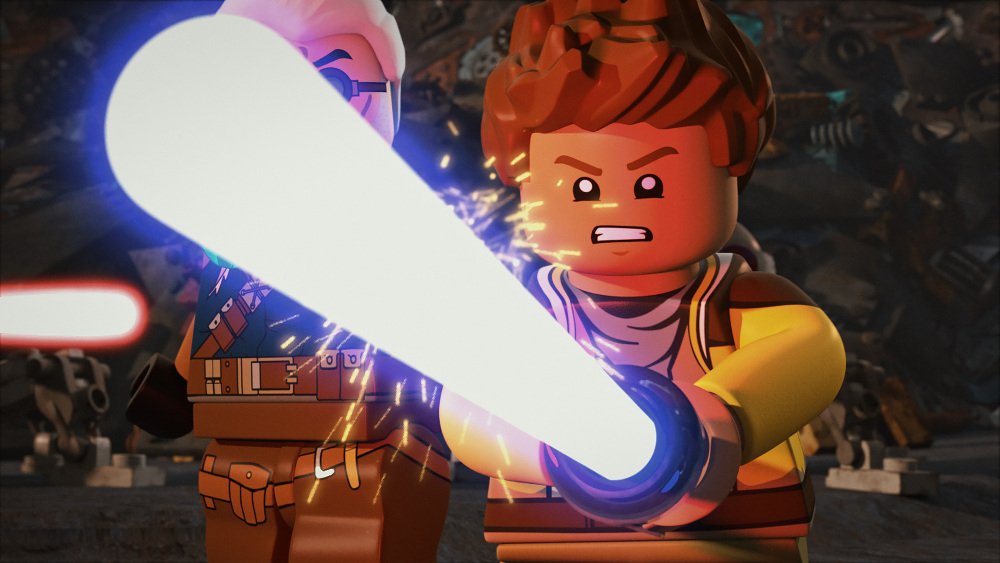Interview: LEGO Star Wars Composer Michael Kramer
Composer Michael Kramer compares what he does to building a LEGO set. "Anyone who's grown up with LEGOs knows the thrill of disassembling a set to create something entirely new from the same pieces," he says. Appropriately, that's exactly what working on Disney XD's LEGO Star Wars: The Freemaker Adventures calls for, as he mixes the old and the new to end up with something that's both original and familar. But his hard work has paid off as he was recently nominated for a Daytime Emmy Award.
Recently Lauren had the chance to chat with Kramer about his composing work on The Freemaker Adventures and other projects:
Lauren Showgren: Thank you so much for taking the time to speak with us at Laughing Place! We've read about some of your work and we're really excited to get to know you better. My first question for you, when did you start composing and who were your early influences?
Michael Kramer: I kind of got a late start to composing. I started piano when I was four or five, and I thought I was going to be performing for a while. The bug of writing music slowly got me. It wasn't until college, though, that I got really serious about it and eventually decided to major in music at Columbia College in Chicago. Some of my early influences, the big one for film music actually was John Williams. I went to go see Jurassic Park in the theater, that was the big one for me. When I first saw the way that they had arranged the titles for Freemaker Adventures, my name pops up for the credits, and it's Michael Kramer and then underneath me is John Williams. I'm like, "No, no, no, uh, you messed up the order. This needs to be corrected."
LS: Tell me, what are your first steps in your process of composing?
MK: It always starts with story, and that's the most important thing. With Freemaker Adventures, it's animation, so it's a little bit different than other types of mediums. The basic things are still the same, but what's unique about animation is there's a longer gestation, I think is the way to put it.
Oftentimes I'll get the scripts, obviously, and read through so I can get a broad sense of all the story arcs and I know where the story's going, but then I'll get a rough animation. Sometimes I'll get almost storyboards, which is really interesting. It's basically the performance that's been recorded by the voice actor, and then the storyboard that's roughly, roughly animated just to get the general timing of the episode.
That's the roughest it gets. Oftentimes, it's a blocking animation where it's rough 3D forms and they're kind of ... The basic motion is there, but all the detail isn't filled in yet. You definitely, when you get it at that stage, you have to use your imagination quite a bit.
LS: I know we've already talked quite a bit about John Williams, but I have to know- I'm a huge John Williams fan myself, so how did it feel to be set loose to play with John Williams' classic themes, and what is your favorite motif in the original Star Wars trilogy?
MK: Starting off I was terrified, I'm not going to lie. He's just, he's such a huge figure in film music. You ask somebody on the street the name of a film composer, 95% of them will say John Williams and not be able to name anybody else. He's one of the few film composers that's an actual household name.
Once I got past the initial fear, it was just incredibly inspiring to work with his music. He is a master, master, master of melody. I've listened to his interviews before and he talks about how the composing process, the most difficult thing is just coming up with those few little notes, the notes that become the main melody. The rest of it, it's not so hard, but trying to come up with that main theme, that melody, and make it feel like it's always been there. That's the really difficult part. I've had an incredible time learning from the master.
Then let's see, the second part was, my favorite theme in Star Wars. You know, I have to say the force theme. There's so much to it. There's tragedy, there's heroicism, there's vulnerability, there's optimism. There's so many emotions that are contained within that melody. It's pretty amazing. One of the really fun things is because there's so much emotional potential energy in that melody that it's really fun to play with that melody in Freemaker Adventures. The possibilities are, they're neverending with that theme as it relates to the story.
LS: Absolutely. I like that you mentioned that you were able to play with that because my next question is, how were you able to put your own mark in the already-famous Star Wars musical universe?
MK: Great question. It's this dance where I have to keep my eye on what is the DNA of the musical universe of Star Wars, and at the same time be true to myself as a composer. I'm not John Williams, and if I just solely tried to write like him it doesn't work. It sounds like a bad knock-off. I got to make it my own, and at the same time try and respect as much as possible what he's done before.
It's a dance, a balancing act of trying to get it right. Sometimes I'll score a scene and I think it works really well, and it sounds like me, but you take a step back and you realize this doesn't sound like Star Wars music. It's back to the drawing board. That's gotten a little bit easier, especially as we've gotten into season two and I have a whole season under my belt of operating in that mode right out of the gate.
LS: Absolutely! Michael, thank you so much, that's all I've got for you today. From all of us at Laughing Place including myself, we wish you just the best of luck, and we can't wait to tune in and watch Lego Star Wars, the Freemaker Adventures to hear more of your work.
MK: Awesome. Thank you, Lauren, I appreciate it.
Disney XD's LEGO Star Wars: The Freemaker Adventures has just been renewed for a second season set to air this summer.





